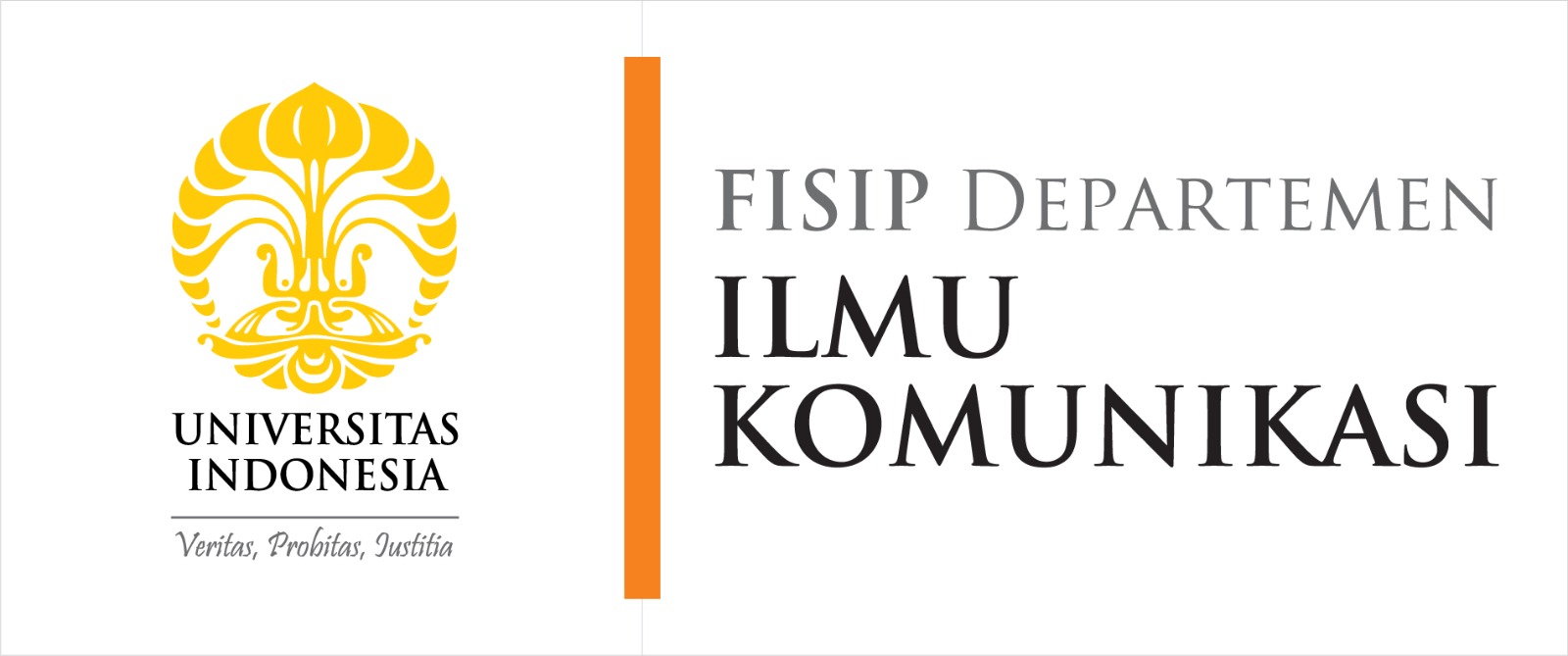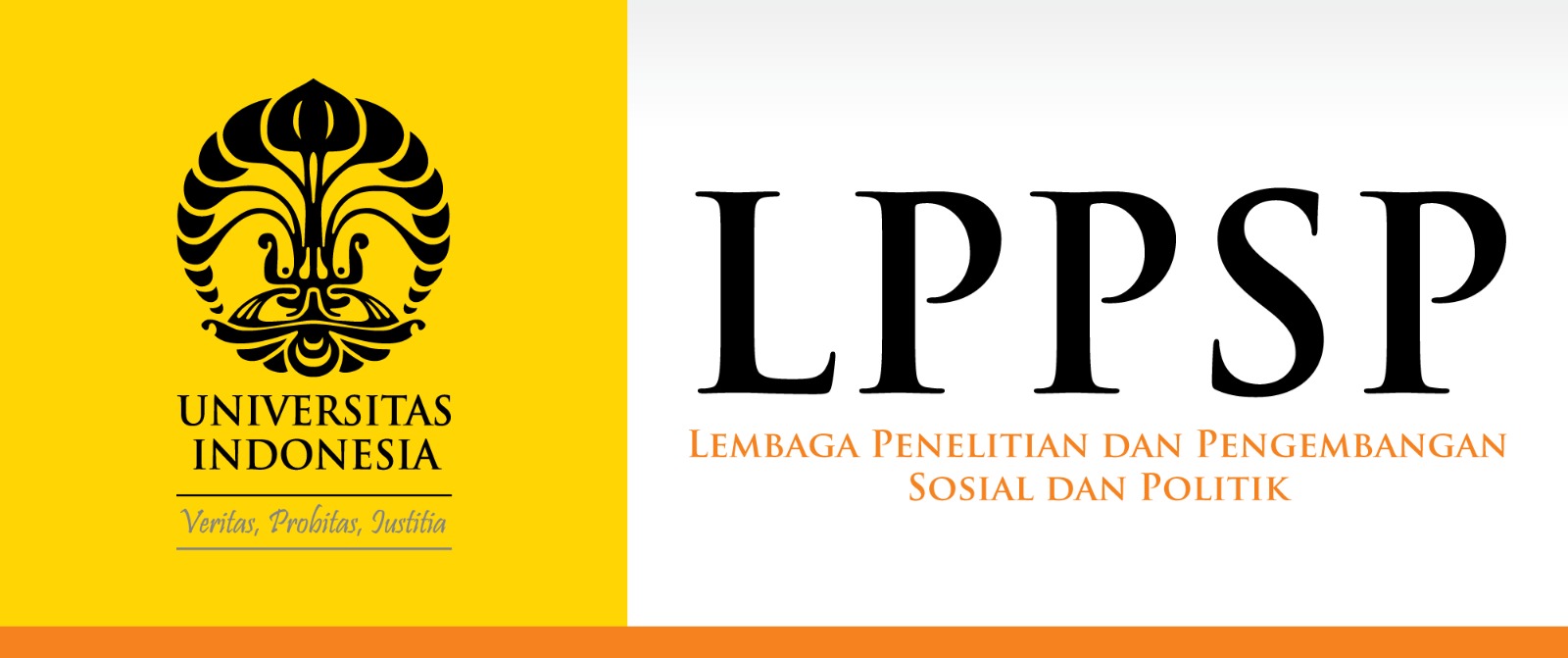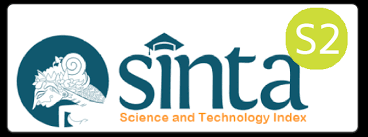JURNAL KOMUNIKASI INDONESIA
Abstract
The presence of online platforms such as financial technology lending platforms is like a double-edged knife for women. These platforms pave the way for restrictions on women accessing loans. However, the use of fintech poses risks to women. They become victims of cybercrime with the existence of desk collectors who collect online loans and the third party who use the women's data. This study aims to examine the cybercrime implications of using fintech experienced by women related to fintech lending and then explore the role, data protection, and scope of the PDP Law as a solution. This study uses Qualitative Content Analysis (QCA) with the Tripartite Cybercrime Framework (TCF) from Ibrahim (2019) and Lazarus (2022) to analyze the problem. According to the author's criteria, the research data is from 15 women's complaint letters against fintech lending platforms that we obtained through the mediakonsumen.com website from 12 September 2020 to 8 November 2022. The PDP law, LBH reports, press releases, and relevant news media complement the data. These letters show five categories of women's experiences with online loan desk collector billing: online fraud, unauthorized transmission and use of personal data, identity theft, cyberbullying, and online harassment. This research also obtains socio-economic and psychosocial blending motives from online loan desk collectors. The core problem in online loan cases is ownership and access to personal data. Nevertheless, the PDP Law does not cover fundamental rights to data security, namely privacy rights and the victim's right to recovery.
References
Ameliah, R., Negara, R.A., & Rahmawati, I. (2021). Status Literasi Digital di Indonesia 2021. Retrieved from https://cdn1.katadata.co.id/media/microsites/litdik/Status_Literasi_Digital_diIndonesia%20_2021_190122.pdf
Badan Pengembangan dan Pembinaan Bahasa. (2016). KBBI Daring. Kemdikbud. https://kbbi.kemdikbud.go.id/
Badan Pusat Statistik. (2022). Keadaan Ketenagakerjaan Indonesia Februari 2022 [Press Release]. https://www.bps.go.id/pressrelease/2022/05/09/1915/februari-2022--tingkat-pengangguran-terbuka--tpt--sebesar-5-83-persen.html
Buckingham, D. (2015). Defining digital literacy: What do young people need to know about digital media? Nordic Journal of Digital Literacy, 10, 21–35. https://doi.org/10.18261/issn1891-943x-2015-jubileumsnummer-03
Center for Digital Society. (2021). Digital Literacy as Basic Competency for Post?Pandemic Life. https://cfds.fisipol.ugm.ac.id/wp-content/uploads/sites/1423/2021/11/78-CfDS-Case-Study-Digital-Literacy-as-Basic-Competency-for-Post-Pandemic-Life.pdf
Chandra, A., & Snowe, M. J. (2020). A taxonomy of cybercrime: Theory and design. International Journal of Accounting Information Systems, 38, 100467. https://doi.org/10.1016/j.accinf.2020.100467
Chesney-Lind, M. (2020). Feminist criminology in an era of misogyny†. Criminology, 58(3), 407–422. https://doi.org/10.1111/1745-9125.12247
Common, M. F. (2020). Fear the Reaper: how content moderation rules are enforced on social media. International Review of Law, Computers and Technology, 34(2), 126–152. https://doi.org/10.1080/13600869.2020.1733762
Connell, R. W., & Messerschmidt, J. W. (2005). Hegemonic masculinity rethinking the concept. Gender and Society, 19(6), 829–859. https://doi.org/10.1177/0891243205278639
Deci, E. L., & Ryan, R. M. (2015). Self-Determination Theory. In International Encyclopedia of the Social & Behavioral Sciences: Second Edition (Vol. 11). Elsevier. https://doi.org/10.1016/B978-0-08-097086-8.26036-4
Despotović, A., Parmaković, A., & Miljković, M. (2023). Cybercrime and cyber security in fintech. In Digital transformation of the financial industry: approaches and applications (pp. 255-272). Cham: Springer International Publishing
Dihni, V. A. (2021). OJK Catat Outstanding Pinjaman Online Sebesar Rp 27,9 Triliun pada Oktober 2021. Katadata.co.id. http://databoks.katadata.co.id/datapublish/2021/12/15/ojk-catat-outstanding-pinjaman-online-sebesar-rp-279-triliun-pada-oktober-2021
Sila, G.E. & Cevi, M.T. (2023). Literasi Digital Untuk Melindungi Masyarakat Dari Kejahatan Siber. Komversal, 5(1), 112–123. https://doi.org/10.38204/komversal.v5i1.1225
Estrada, M. S. (2023). Feminist Strategies Against Digital Violence: Embodying and Politicizing the Internet. Studies in Social Justice, 17(2), 241–258. https://doi.org/10.26522/ssj.v17i2.3417
Europol. (2011). Cybercrime presents a major challenge for law enforcement. https://www.europol.europa.eu/media-press/newsroom/news/cybercrime-presents-major-challenge-for-law-enforcement
Gagné, M., Gagné, M., & Deci, E. L. (2014). The History of Self-Determination Theory in Psychology and Management. In M. Gagné (Ed.), The Oxford Handbook of Work Engagement, Motivation, and Self-Determination Theory. Oxford University Press. https://doi.org/10.1093/oxfordhb/9780199794911.013.006
Henry, N., Flynn, A., & Powell, A. (2020). Technology-Facilitated Domestic and Sexual Violence: A Review. Violence Against Women, 26(15–16), 1828–1854. https://doi.org/10.1177/1077801219875821
Hiyanti, H., Nugroho, L., Sukmadilaga, C., & Fitrijanti, T. (2020). Peluang dan Tantangan Fintech (Financial Technology) Syariah di Indonesia. Jurnal Ilmiah Ekonomi Islam, 5(3), 326–333. https://doi.org/10.29040/jiei.v5i3.578
Ibrahim, S. (2016). Social and contextual taxonomy of cybercrime: Socioeconomic theory of Nigerian cybercriminals. International Journal of Law, Crime and Justice, 47, 44–57. https://doi.org/10.1016/j.ijlcj.2016.07.002
Undang-Undang Perlindungan Data Pribadi, Ditama Binbangkum - BPK RI 1 (2022). https://peraturan.bpk.go.id/Home/Details/229798/uu-no-27-tahun-2022
Jane, E. A. (2014). “Your a ugly, whorish, slut”: Understanding E-bile. Feminist Media Studies, 14(4), 531–546. https://doi.org/10.1080/14680777.2012.741073
Katadata Insight Center & Kominfo (2021). Status Literasi Digital di Indonesia: Hasil Survei di 34 Provinsi. https://katadata.co.id/StatusLiterasiDigital
Kivivuori, J., Aaltonen, M., & Näsi, M. (2021). Kriminologia: Rikollisuus ja kontrolli muuttuvassa yhteiskunnassa (3. painos). Gaudeamus.
Klasen, S., & Lamanna, F. (2009). The impact of gender inequality in education and employment on economic growth: New evidence for a panel of countries. Feminist Economics, 15(3), 91–132. https://doi.org/10.1080/13545700902893106
Kominfo. (2019). 5 Alasan Mengapa Data Pribadi Perlu Dilindungi. https://www.kominfo.go.id/content/detail/19991/5-alasan-mengapa-data-pribadi-perlu-dilindungi/0/sorotan_media
Sari, D.A.K, Hutabarat, R.M., Tardi, S.A. (Eds.) (2021). Perempuan dalam himpitan pandemi: lonjakan kekerasan seksual, kekerasan siber, perkawinan anak,dan keterbatasan penanganan di tengah covid-19. Catatan Kekerasan terhadap Perempuan Tahun 2020. https://komnasperempuan.go.id/catatan-tahunan-detail/catahu-2021-perempuan-dalam-himpitan-pandemi-lonjakan-kekerasan-seksual-kekerasan-siber-perkawinan-anak-dan-keterbatasan-penanganan-di-tengah-covid-19
Komnas Perempuan. (2022, September 28). Siaran Pers Terkait Tindak Lanjut UU Perlindungan Data Pribadi Untuk Memastikan Jaminan Rasa Aman Bagi Perempuan [Press Release]. https://komnasperempuan.go.id/siaran-pers-detail/siaran-pers-terkait-tindak-lanjut-uu-perlindungan-data-pribadi-untuk-memastikan-jaminan-rasa-aman-bagi-perempuan
Kowalski, R. M., Giumetti, G. W., Schroeder, A. N., & Lattanner, M. R. (2014). Bullying in the digital age: A critical review and meta-analysis of cyberbullying research among youth. Psychological Bulletin, 140(4), 1073–1137. https://doi.org/10.1037/a0035618
Kumar, P., Gruzd, A., & Mai, P. (2021). Mapping out Violence Against Women of Influence on Twitter Using the Cyber–Lifestyle Routine Activity Theory. American Behavioral Scientist, 65(5), 689–711. https://doi.org/10.1177/0002764221989777
Kurnianingsih, M., Azhari, A. F., Dimyati, K., Absori, A., Wardiono, K., Kuswardhani, K., & Nurrachman, A. D. (2022). Criminal Victimization: Women and Fintech Financing from the Theory of Lifestyle Exposure. International Journal of Multicultural and Multireligious Understanding, 9(2), 157. https://doi.org/10.18415/ijmmu.v9i2.3357
Lazarus, S. (2019). Just married: the synergy between feminist criminology and the Tripartite Cybercrime Framework. International Social Science Journal, 69(231), 15–33. https://doi.org/10.1111/issj.12201
Lazarus, S., Button, M., & Kapend, R. (2022). Exploring the value of feminist theory in understanding digital crimes: Gender and cybercrime types. Howard Journal of Crime and Justice, 61(3), 381–398. https://doi.org/10.1111/hojo.12485
Lee, C. C., Li, X., Yu, C. H., & Zhao, J. (2021). Does fintech innovation improve bank efficiency? Evidence from China’s banking industry. International Review of Economics and Finance, 74, 468–483. https://doi.org/10.1016/j.iref.2021.03.009
Lynch, M. J. (2018). Acknowledging Female Victims of Green Crimes: Environmental Exposure of Women to Industrial Pollutants. Feminist Criminology, 13(4), 404–427. https://doi.org/10.1177/1557085116673172
Morahan-Martin, J. (2000). Women and the Internet: Promise and perils. Cyberpsychology and Behavior, 3(5), 683–691. https://doi.org/10.1089/10949310050191683
Mursyid, F., & Akbar, N. A. (2022, September 20). Terbitnya UU PDP Bukan Solusi Akhir Masalah Perlindungan dan Kebocoran Data. Republika. https://news.republika.co.id/berita/riiarn328/terbitnya-uu-pdp-bukan-solusi-akhir-masalah-perlindungan-dan-kebocoran-data
Mutiara, C. (2022). Literasi Digital Perempuan Indonesia Belum Setara dengan Laki-laki. https://databoks.katadata.co.id/datapublish/2022/07/14/literasi-digital-perempuan-indonesia-belum-setara-dengan-laki-laki
Novia, I. (2022, September). OJK: Kredit Macet Pinjol Capai Rp 1,21 Triliun, Kebanyakan Perempuan Usia Produktif. Republika. https://ekonomi.republika.co.id/berita/ri4lmc349/ojk-kredit-macet-pinjol-capai-rp-121-triliun-kebanyakan-perempuan-usia-produktif
Ozili, P. K. (2018). Impact of digital finance on financial inclusion and stability. Borsa Istanbul Review, 18(4), 329–340. https://doi.org/10.1016/j.bir.2017.12.003
PR2Media. (2023). Research Paper: Regulations for Moderating Illegal content on social media in Indonesia. https://pr2media.or.id/publikasi/research-paper-regulations-for-moderating-illegal-content-on-social-media-in-indonesia/
Purnomo, A. (2021). Tragis Wanita Terjerat Utang 23 Pinjol Ilegal hingga Bunuh Diri. https://news.detik.com/berita-jawa-tengah/d-5776778/tragis-wanita-terjerat-utang-23-pinjol-ilegal-hingga-bunuh-diri
Rahayu. (2021). Perempuan dan Literasi Digital. Gadjah Mada University Press.
Reep-van den Bergh, C. M. M., & Junger, M. (2018). Victims of cybercrime in Europe: a review of victim surveys. Crime Science, 7(1). https://doi.org/10.1186/s40163-018-0079-3
Rolobessy, V. Y., Malik, F., & Suwarti, S. (2023). Legal Liability of Illegal Online Loans in the Perspective of Criminal Law. Journal of Social Science, 4(2), 439–454. https://doi.org/10.46799/jss.v4i2.542
Romansky, R. (2019). A Survey of Informatization and Privacy in the Digital Age and Basic Principles of The New Regulation. International Journal on Information Technologies & Security, 11(1), 95–106. https://openurl.ebsco.com/EPDB%3Agcd%3A14%3A14696174/detailv2?sid=ebsco%3Aplink%3Ascholar&id=ebsco%3Agcd%3A135033191&crl=f
Ryan, K. M. (2018). Vertical video: rupturing the aesthetic paradigm. Visual Communication, 17(2), 245–261. https://doi.org/10.1177/1470357217736660
Schreier, M. (2012). Qualitative Content Analysis in Practice. Jacobs University Bremen, Germany.
Septiani, L. (2022). Marak Kebocoran Data di Indonesia, Ahli IT Akui BSSN Kekurangan Dana. https://katadata.co.id/desysetyowati/digital/631ae3496034b/marak-kebocoran-data-di-indonesia-ahli-it-akui-bssn-kekurangan-dana
Shabrina, D. (2022, September 30). RUU Perlindungan Data Pribadi belum Lindungi Perempuan dari Kekerasan Siber. Media Indonesia. https://mediaindonesia.com/humaniora/526775/ruu-perlindungan-data-pribadi-belum-lindungi-perempuan-dari-kekerasan-siber
Sharp, S. F. (2015). Feminist Criminology and Gender Studies. In J.D. Wright (Ed.) International Encyclopedia of the Social & Behavioral Sciences (2nd Ed, pp. 912–917). https://doi.org/10.1016/B978-0-08-097086-8.45059-2
Sheldon, K. M., & Titova, L. (2023). Social media use and well-being: testing an integrated self-determination theory model. Media Psychology, 26(6), 637–659. https://doi.org/10.1080/15213269.2023.2185259
Siagian, N., Siregar, H., & Nababan, R. (2023). Online Lending Business and Its Criminal Aspect of Collectibility. Journal on Education, 5(3), 7400–7405. https://doi.org/10.31004/joe.v5i3.1529
Sim, W. L., Chua, H. N., & Tahir, M. (2019). Blockchain for Identity Management: The Implications to Personal Data Protection. 2019 IEEE Conference on Application, Information and Network Security, 30–35. https://doi.org/10.1109/AINS47559.2019.8968708
Sinombor, S. H. (2023). Perempuan Paling Banyak Terjerat ”Pinjol”. Kompas.Com. https://www.kompas.id/baca/humaniora/2023/02/03/rendah-literasi-keuangan-digital-perempuan-terus-jadi-korban
Soomro, T. R., & Hussain, M. (2019). Social media-related cybercrimes and techniques for their prevention. Applied Computer Systems, 24(1), 9-17. https://doi.org/10.2478/acss-2019-0002
Stevens, F., Nurse, J. R. C., & Arief, B. (2021). Cyber Stalking, Cyber Harassment, and Adult Mental Health: A Systematic Review. Cyberpsychology, Behavior, and Social Networking, 24(6), 367–376. https://doi.org/10.1089/cyber.2020.0253
StopBullying.gov. (2017). The Consequences of Bullying Academic Effects [Fact Sheet]. The Maternal and Child Health Bureau, Health Resources and Services Administration, U.S. Department of Health and Human Services. https://www.stopbullying.gov/sites/default/files/2017-10/consequences-of-bullying-fact-sheet.pdf
Tamò-Larrieux, A. (2018). Designing for privacy and its legal framework: Data protection by design and default for the internet of things (1st Ed). Springer.
Tan, C. (2018). Regulating Content on Social Media: Copyrights, Terms of Service and Technological Features. UCL Press. https://doi.org/10.2307/j.ctt2250v4k
Thakor, A. (2020). Corrigendum to: Fintech and Banking: What Do We Know? Journal of Financial Intermediation, 43, 100858. https://doi.org/10.1016/j.jfi.2020.100858
Viano, E. C. (Ed.). (2017). Cybercrime, Organized Crime, and Societal Responses: International Approaches (1st Ed). Springer. https://doi.org/10.1007/978-3-319-44501-4
Watts, L. K., Wagner, J., Velasquez, B., & Behrens, P. I. (2017). Cyberbullying in higher education: A literature review. Computers in Human Behavior, 69, 268–274. https://doi.org/10.1016/j.chb.2016.12.038
Recommended Citation
Rosyidah, Ambar Alimatur; Fajriyah, Farah; and Rahayu, Rahayu
(2024)
"Cyber Crime Against Women's Personal Data on Online Platforms and The Role of PDP Laws,"
JURNAL KOMUNIKASI INDONESIA: Vol. 13:
No.
2, Article 7.
DOI: 10.7454/jkmi.v13i2.1229
Available at:
https://scholarhub.ui.ac.id/jkmi/vol13/iss2/7
Included in
Communication Technology and New Media Commons, Feminist, Gender, and Sexuality Studies Commons, Gender, Race, Sexuality, and Ethnicity in Communication Commons, International and Intercultural Communication Commons, Social Media Commons




